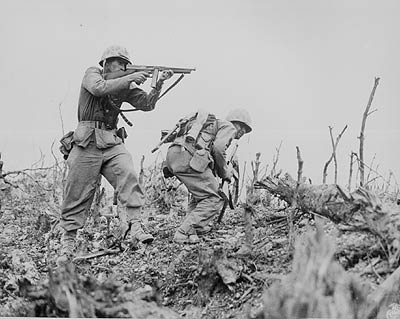
Sixty-seven years ago, in May 1945, the Nazi regime collapsed being squeezed ever more tightly between two fronts – the Soviet Union on one side and the Western Allies on the other.
But which of these fronts was the most important?
Throughout the Cold War, and ever since, each side has tended to see its own contribution as decisive.
“In the West, for some time… public opinion has taken the view that the Soviet Union played a secondary role,” said the Russian historian Valentin Falin.
On the other hand, opinion polls show that two-thirds of Russians think the Soviet Union could have defeated Hitler without the Allies’ help, and half think the West underestimates the Soviet contribution.
Richard Overy, professor of contemporary history at King’s College London, noted that after the war, Adolf Hitler’s foreign minister Joachim von Ribbentrop listed three main reasons for Germany’s defeat:
• Unexpectedly stubborn resistance from the Soviet Union
• The large-scale supply of arms and equipment from the US to the Soviet Union, under the lend-lease agreement
• The success of the Western Allies in the struggle for air supremacy.

Richard Overy said that for decades Soviet historians underplayed the significance of US and UK lend-lease in the Soviet Union’s success, but that Russia has recently shown just appreciation.
Valentin Falin, however, says Russians never forgot the help they received from their allies.
“You ask any Soviet person, whether he remembers what a Dodge or a Willis is!” he said.
“The Americans supplied us with 450,000 lorries. Of course, in the final stages of the war this significantly increased our armed forces’ mobility, decreased our losses and brought us, perhaps, greater success than if we had not such help.”
Richard Overy accepts that the Western powers played a smaller role on the battlefield itself than the Soviet forces but says their bombing campaigns made a huge contribution.
“Bombing diverted a lot of manpower and military equipment from the front in Russia, while it restricted the expansion of the German war economy,” he said.
He also agreed that the West still only has a weak understanding of the Soviet Union’s role.
“Because Britain and the US had to invade Europe by sea [Italy in 1943, and France in 1944] they have more of a sense of <<liberating>> a German-conquered Europe,” he said.
Valentin Falin, meanwhile, argued that the war could have been brought to an end more quickly if the second front, in France, had been opened before 1944.
“How many millions of people would have remained alive?” he asks.
“Many death camps reached full power precisely in the second half of 1943 and in 1944.”
Richard Overy said that the West has a view of the war as a global conflict, because of its fight against Japan, for example, whereas the Soviet view is of a “national crusade to repel the invader”.
Valentin Falin cited figures suggesting that German forces suffered 93% of their casualties on the Soviet front and argued that this shows the Soviet contribution was decisive.
But he added that every single US, UK, Canadian or other Allied soldier who died “made a big, important and necessary contribution to the victory, which was a shared victory”.